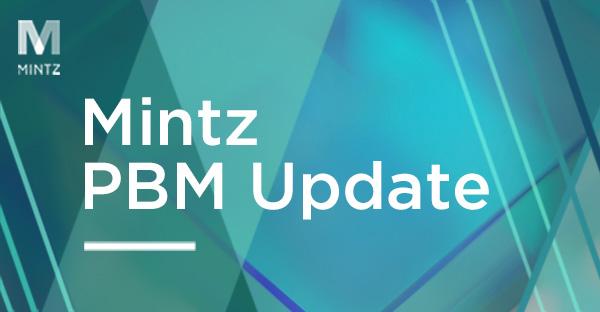PBM Legislation in the Reconciliation Bill is Far From Sweeping PBM Reform
Over the past few years, Congress has attempted to pass “federal PBM reform.” Members of Congress have held numerous hearings related to PBMs and introduced numerous bills seeking to regulate PBMs (we regularly track these federal actions through our quarterly PBM Policy and Legislative Updates). Despite the rhetoric in Washington about bipartisan support to regulate PBMs, Congress has not been able to pass meaningful PBM reform. This brings us to the One Big Beautiful Bill (Reconciliation Bill), which includes some PBM measures but remains far from the sweeping reform Congress previously introduced and from what we are seeing at the state level. The House passed the Reconciliation Bill on May 22, 2025, with a slim margin of 215 to 214. The Reconciliation Bill will now move to the Senate, where the Senate will need to approve it with a simple majority for it to become law.
The PBM provisions included in the Reconciliation Bill are unlikely to significantly impact the drug supply chain or PBMs’ practices. As discussed in further detail below, PBMs are generally already complying with many of the requirements set forth in the Reconciliation Bill. This blog will outline the key provisions of the Reconciliation Bill and their impact (or potential lack thereof) on PBM operations.
Definition of a PBM
The Reconciliation Bill defines a “pharmacy benefit manager” broadly to include “any person or entity that, directly or through an intermediary, acts as a price negotiator or a group purchaser …or manages the prescription drug benefits” on behalf of or provided by a state, managed care company, or “other specified entity,” regardless of whether the entity calls itself a PBM. The definition states that managing the prescription drug benefit may include processing claims, performing drug utilization review, processing prior authorizations, or contracting with pharmacies. The definition also states that a “pharmacy benefit manager” will include (i) “any entity that acts as a price negotiator (with regard to payment amounts to pharmacies and providers for covered outpatient drugs)” on behalf of a state, managed care entity, or other entity, or (ii) any entity that carries out one or more of the activities discussed in the prior sentence. This definition is intended to and will likely encompass entities beyond traditional PBMs, including rebate aggregators and utilization management entities.
Prohibition of Spread Pricing in Medicaid
The Reconciliation Bill requires that contracts between the state and (i) a PBM, or (ii) a Medicaid managed care entity (MCO) that includes drug coverage, be based on a pass-through pricing model prohibiting spread pricing. Under the pass-through pricing model:
- Payments to pharmacies for drugs must be (i) limited to the ingredient cost of the drug and a professional dispensing fee that is not less than the professional dispensing fee a state would pay if the state were making the payment directly in accordance with the state Medicaid plan; (ii) equivalent to the amounts that the PBM charges the state or MCO for the drug such that the full amount of the payment to the PBM is “passed through” to the pharmacy dispensing the drug (with exceptions for state laws and regulations in response to FWA); and (iii) in a manner consistent with federal regulations specifying upper payment limits CMS will pay for drugs under the state Medicaid program.
- Payment for administrative services is limited to an administrative fee that reflects FMV.
- Upon request, the PBM or MCO must report to the state on a drug-level basis all costs and payments related to the covered outpatient drug and the accompanying administrative service fees.
The Reconciliation Bill would condition the federal match of Medicaid payments on the prohibition of “spread pricing.”
This prohibition of spread pricing in Medicaid is not a new practice and many states already prohibit it. Further, given several lawsuits and settlements with Medicaid MCOs in 2021 and 2022 stemming from spread pricing, Medicaid MCOs generally prohibit spread pricing as well. Therefore, it is unlikely the Reconciliation Bill will significantly change current practice in Medicaid.
Transparency Requirements in Medicare Part D
The Reconciliation Bill requires PBMs contracting with a Medicare Part D prescription drug plan sponsor (PDP Sponsor) to, among other things, (i) consistently and transparently define, interpret, and apply terms related to their performance of pricing guarantees or similar cost performance measurements related to rebates, discounts, price concessions, or net costs set forth in agreements between PDP Sponsors and PBMs, and (ii) annually report to HHS and the PDP Sponsor detailed information related to dispensed drugs, including, but not limited to, rebates received by manufacturers, and total manufacturer-derived revenue (including bona fide service fees retained by PBM and PBM affiliates).
“Delinking” PBM Payments
The proposed bill would prohibit PBMs from receiving income for services in any form other than a bona fide service fee (BFSF) defined as (i) a flat fee, (ii) consistent with fair market value (FMV), (iii) for services actually performed by the PBM or its affiliate on behalf of the PDP Sponsor that the PDP Sponsor would otherwise perform itself if not for the arrangement with the PBM, (iv) not based or contingent upon drug price, remuneration (such as rebates, discounts, and other fees), coverage decisions, formulary placement, the volume or value of referrals or business generated between the PBM and PDP Sponsor, or other criteria prohibited by the Secretary, and (v) not passed on to a client or customer (regardless of who takes title to the drug).
This definition of BFSF differs from the definition used in current Medicare Part D and Medicaid laws and creates immediate tension by requiring that the fee be flat and simultaneously FMV given that the volume of services to be provided is often unknown at the time agreements are formed. Further, the proposed bill indicates that “incentive payments” paid by PDP Sponsors to PBMs will be deemed BFSF so long as they meet the relevant BFSF requirements.
Rebates, discounts, and other price concessions received by a PBM from manufacturers, even if calculated as a percentage of a drug’s price, would not be in violation of this provision if such amounts are fully passed through to the PDP Sponsor and reported in accordance with applicable DIR requirements. PBMs would be required to pass through to the PDP Sponsor any remuneration in violation of the BFSF requirements; and further, PBMs would be required to enter into written agreements with their affiliates to require such affiliates to identify and pass through to the PDP Sponsor any remuneration beyond payments as described above (e.g., BFSF, permitted incentive payments and rebates, discounts, and price concessions). Finally, agreements between PBMs and PDP Sponsors would be subject to review by the Secretary of HHS for determination of FMV of remuneration.
Again, this provision will likely not materially change how PBMs operate in the Part D space today, as most PBMs already fully pass through rebates to the PDP Sponsors in Part D.
Conclusion
The Reconciliation Bill is not the broad, sweeping, PBM reform package that Congress has been working towards. Notably, the provisions discussed above are limited to Medicaid and Medicare. The Reconciliation Bill does not include PBM reforms applicable to commercial plans.
We will continue to monitor the Reconciliation Bill’s progress and provide updates as it goes through the Senate.

PBM Policy and Legislative Update — Spring 2025
June 10, 2025| Blog






